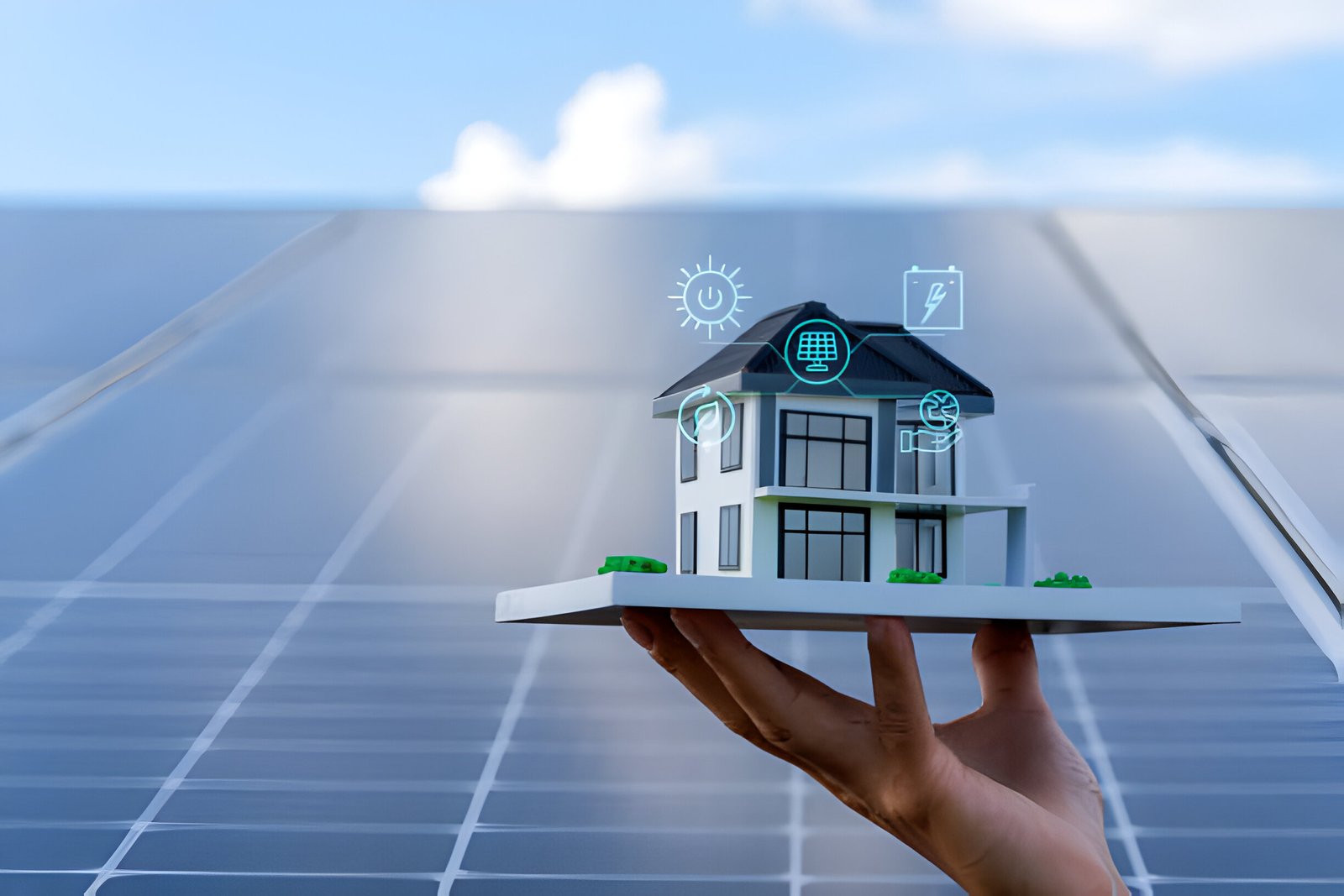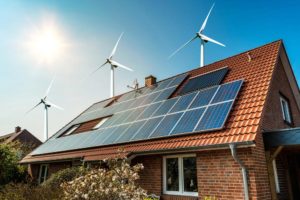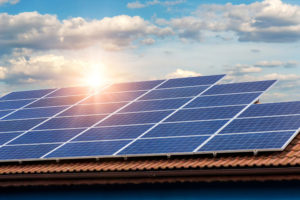Overview of the importance of energy efficiency in homes
Energy efficiency is of utmost importance in homes as it offers a multitude of benefits ranging from financial savings to environmental conservation.
One prominent advantage is the significant reduction in energy bills that homeowners can enjoy. By adopting energy-efficient practices and utilizing appliances that consume less energy, households can cut down on their electricity and gas bills substantially. This not only provides immediate financial relief but also ensures long-term savings.
Furthermore, energy efficiency plays a crucial role in reducing the environmental impact associated with residential energy consumption. By reducing their energy usage, homeowners can effectively lower their carbon footprint, which in turn helps combat climate change and preserve our planet for future generations.
Another key aspect of energy efficiency in homes is the assurance of a consistent supply of hot water. Energy-efficient water heaters are imperative in achieving this. These water heaters are designed to minimize energy wastage during the heating process, allowing for a steady and dependable supply of hot water whenever needed. This is especially beneficial for households with high hot water demand or in areas with fluctuating energy availability.
In conclusion, energy efficiency in homes is essential for numerous reasons. It not only saves money on energy bills but also reduces environmental impact and ensures a consistent supply of hot water. By prioritizing energy efficiency and utilizing energy-efficient appliances, homeowners can enjoy a comfortable living environment while contributing positively to the planet.
Introduction to O’Brien Electrical and Solar and their services
O’Brien Electrical and Solar is a renowned provider of high-quality residential and commercial solar panel cleaning services, as well as tailored commercial solar solutions. With years of experience in the renewable energy industry, they have established themselves as experts in maximizing home and business energy efficiency.
At O’Brien Electrical and Solar, their team of skilled technicians combines their expertise with industry-leading equipment and techniques to ensure the optimal efficiency of solar panels. They understand that clean and well-maintained solar panels are crucial for generating maximum power output. Therefore, they offer comprehensive cleaning services to remove dirt, debris, and other contaminants that may hinder the panels’ performance.
In addition to their cleaning services, O’Brien Electrical and Solars also specializes in providing tailored commercial solar solutions. Their team works closely with businesses to design and install custom solar systems, taking into account the unique energy needs and infrastructure of each client.
Furthermore, O’Brien Electrical and Solar offers energy efficiency consultations to help homeowners and businesses identify areas for improvement and develop strategies for reducing energy consumption. They provide expert guidance on energy-saving technologies, suggesting suitable options for implementing energy-efficient practices.
Choose O’Brien Electrical and Solar for their exceptional residential and commercial solar panel cleaning services, tailored commercial solar solutions, and energy efficiency consultations. Their dedication to customer satisfaction, paired with their skilled technicians and industry-leading equipment, makes them a trusted choice for optimizing the energy efficiency of your home or business.
Benefits of Solar Energy
Solar energy is a renewable source of power that has gained significant momentum in recent years due to its numerous benefits. As concerns about climate change and environmental sustainability continue to grow, homeowners are increasingly turning to solar energy as a way to maximize their home’s energy efficiency and reduce their carbon footprint.
By harnessing the power of the sun, solar panels can generate clean and renewable electricity that can be used to power the home’s appliances, lighting, and heating systems. One of the biggest benefits of solar energy is the potential for significant savings on energy bills. By generating their own electricity, homeowners can reduce or even eliminate their reliance on the grid, resulting in lower monthly utility costs.
Additionally, solar panels require minimal maintenance and have a lifespan of up to 25 years, making them a long-term investment that can provide financial benefits for years to come. Finally, adopting solar energy is a tangible way for homeowners to contribute to a greener future by reducing their dependence on fossil fuels and decreasing greenhouse gas emissions.
Reduced energy costs
Reducing energy costs is a major concern for individuals looking to maximize their home’s energy efficiency. There are several effective ways to achieve this goal. Firstly, individuals can make simple changes in their daily habits such as turning off lights and appliances when not in use, using natural daylight whenever possible, and adjusting thermostat settings to ensure efficient heating and cooling.
Installing energy-efficient water heaters is another crucial step towards reducing energy costs. These water heaters are designed to optimize energy usage by minimizing heat loss and maximizing hot water output. By transitioning to energy-efficient models, homeowners can significantly reduce their energy consumption and lower utility bills.
Using energy-saving devices, such as timers and low-flow fixtures, can also contribute to energy cost reduction. Timers can be used to automatically control the usage of electrical devices, ensuring they are only in operation when needed. Low-flow fixtures, on the other hand, limit water flow without compromising performance, thus reducing water and energy wastage.
The potential savings of choosing the right water heating system and installing solar panels are substantial. An energy-efficient water heater alone can save individuals up to 30% on water heating costs. Additionally, installing solar panels can lead to even greater savings. Photovoltaic systems generate clean and renewable energy, providing homeowners with significant reductions in both electricity bills and dependence on the grid.
Incentives provided by the government further encourage individuals to switch to solar energy. These incentives include tax credits, grants, and rebate programs, making solar installation more affordable. Taking advantage of these incentives can result in additional cost savings and contribute to a more sustainable future.
By implementing these energy-saving strategies and taking advantage of government incentives, individuals can greatly reduce their energy costs and promote a greener and more efficient home.
Lower electricity bills
Upgrading to an energy-efficient water heater can significantly reduce electricity bills for homeowners. An energy-efficient water heater is designed to consume less power while still providing the necessary hot water for household needs. This reduction in electricity consumption translates directly into cost savings for homeowners.
In Sydney, where electricity prices tend to be high, reduced energy consumption can have a significant impact on monthly expenses. By investing in an energy-efficient water heater, residents can reduce their overall electricity usage, resulting in lower bills. This is particularly important in a city like Sydney where the cost of living can be quite high.
There are several factors that contribute to lower electricity bills when using an energy-efficient water heater. Firstly, the efficiency rating of the system plays a crucial role. Energy-efficient water heaters typically have higher efficiency ratings, meaning they waste less energy during operation. This directly reduces electricity usage, leading to cost savings.
Additionally, these water heaters are designed to use less energy overall, resulting in further reduction in electricity bills. By utilizing innovative technologies and implementing features like insulation, these systems minimize heat loss, ensuring that less energy is wasted during the heating process.
In summary, upgrading to an energy-efficient water heater is an effective way to reduce electricity consumption and lower monthly bills for Sydney residents. The higher efficiency rating, coupled with the overall reduction in energy usage, contributes to significant cost savings. Investing in energy efficiency not only benefits homeowners financially but also helps to promote a more sustainable and environmentally friendly lifestyle.
Decreased reliance on fossil fuels
An energy-efficient water heater can significantly decrease reliance on fossil fuels in multiple ways. These innovative systems utilize renewable energy sources, such as solar power, to heat water, drastically reducing the need for nonrenewable energy sources like natural gas or oil.
Solar-powered water heaters harness the sun’s energy through the use of solar panels or collectors, converting it into heat energy to warm water. This renewable energy source eliminates the need for traditional heating methods that rely on nonrenewable fossil fuels. By harnessing the power of the sun, homeowners can minimize their reliance on natural gas or oil, reducing both their environmental footprint and dependence on these scarce resources.
Furthermore, solar water heaters provide several environmental benefits. First and foremost, they minimize greenhouse gas emissions associated with the burning of fossil fuels for heating purposes. By decreasing the consumption of nonrenewable energy sources, these systems contribute to the reduction of pollutants and atmospheric pollutants that lead to climate change.
In conclusion, energy-efficient water heaters, powered by renewable energy sources like solar power, offer a significant opportunity to decrease reliance on fossil fuels. By reducing the need for nonrenewable energy sources and minimizing greenhouse gas emissions, homeowners can actively contribute to a more sustainable future while enjoying the economic benefits of lower energy bills.
Understanding Solar Panels
Solar panels are becoming an increasingly popular choice for homeowners looking to maximize their home’s energy efficiency. Understanding how solar panels work is essential in order to make informed decisions about installation and maintenance. Solar panels consist of photovoltaic cells that convert sunlight into direct current (DC) electricity.
This electricity is then converted into alternating current (AC) electricity using an inverter, which can be used to power appliances and electrical systems within the home. Solar panels are typically installed on the roof of a home or in an area that receives ample sunlight throughout the day. They require regular cleaning and maintenance to ensure optimal performance.
Additionally, homeowners can take advantage of government incentives and tax credits to offset the cost of installation. By understanding the basics of solar panels, homeowners can harness the power of renewable energy and significantly reduce their reliance on traditional energy sources.
How solar panels work
Solar panels work by harnessing the power of sunlight and converting it into usable electricity. The key component of a solar panel is the photovoltaic (PV) cell, also known as a solar cell. These cells are made of semiconductor materials, such as silicon, that have the unique ability to convert sunlight directly into electrical energy.
When sunlight shines on the PV cells, it excites the electrons within the semiconductor material, causing them to move and generate a flow of electric current. The cells are layered with a grid of conducting metals, which collect this current and transfer it to wires, forming an electrical circuit. This direct current (DC) electricity produced by the solar cells needs to be converted into alternating current (AC) in order to power homes and businesses.
This is where inverters come into play. Inverters are devices that transform the DC electricity generated by solar panels into AC electricity, which is the standard form of electricity used in most households and commercial buildings. The AC electricity from the inverters can be directly used to power appliances, lights, and other electrical devices. It can also be fed back into the grid if the solar panel system produces more electricity than is needed.
In summary, solar panels work by capturing sunlight and using solar cells to convert it into DC electricity. Inverters then convert this DC electricity into AC electricity, which can be used to power homes and businesses efficiently. By utilizing solar panels and optimizing their energy efficiency, homeowners and businesses can reduce their reliance on traditional power sources, lower their electricity bills, and contribute to a cleaner and more sustainable future.
Types of solar panels available
There are several types of solar panels available in the market today, each with its own features, benefits, and limitations. Understanding the differences between them can help homeowners maximize their home’s energy efficiency.
Monocrystalline solar panels are known for their high efficiency due to their single-crystal structure. They have a uniform black appearance and are often considered the most aesthetically pleasing option. Monocrystalline panels perform well in low-light conditions and have a long lifespan. However, they tend to be more expensive than other types and are less efficient in hot temperatures.
Polycrystalline solar panels are made from multiple silicon crystals, which give them a distinctive blue color. They are less expensive to produce than monocrystalline panels, making them a cost-effective option. Polycrystalline panels have a slightly lower efficiency but perform well in high temperatures. They are also less affected by shade, making them suitable for homes with partially shaded areas.
Thin-film solar panels are made by depositing a thin layer of semiconductor material onto a substrate. These panels are lightweight, flexible, and can be installed on various surfaces, such as roofs or walls. Thin-film panels have lower efficiency compared to crystalline panels but perform better in shaded conditions and have a great temperature coefficient.
Bifacial solar panels have the unique ability to generate electricity from both sides. They can capture sunlight reflected off surfaces, such as the ground or nearby buildings, increasing their overall energy production. Bifacial panels are ideal for installations where sunlight can be reflected or transmitted from the backside, maximizing their efficiency.
In summary, the types of solar panels available include monocrystalline, polycrystalline, thin-film, and bifacial. Each has its own features, benefits, and limitations, allowing homeowners to choose the most suitable option for their specific needs and circumstances.
Factors to consider when choosing solar panels
When choosing solar panels for your home, there are several important factors to consider in order to maximize energy efficiency and ensure a long-lasting investment. Efficiency is a key factor, as it determines how effectively the panels convert sunlight into electricity. Look for solar panels with high-efficiency ratings, as these will generate more electricity and ultimately help offset your energy costs more effectively.
Durability is another vital factor to consider. Solar panels need to withstand various weather conditions such as snow, hail, and strong winds. Choose panels made with durable materials that can withstand harsh climates and have a long lifespan.
A solid warranty is crucial as it protects your investment. Look for manufacturers that offer comprehensive warranties, covering not only the panels themselves but also potential performance issues and degradation over time.
Cost is an important consideration as well. Although solar panels require an initial investment, the long-term savings on energy bills can offset the costs. Compare prices from different suppliers, considering the efficiency and durability factors mentioned above.
Finally, brand reputation plays a significant role. Choose solar panels from reputable manufacturers with a proven track record of quality and customer satisfaction. Research customer reviews and ask for recommendations to ensure you are making the right choice for your home’s energy needs. By considering these factors, you can make an informed decision and maximize your home’s energy efficiency with solar panels.
Maximizing Solar Panel Performance
Maximizing Solar Panel Performance: The key to optimizing your home’s energy efficiency lies in maximizing the performance of your solar panels. With the rising popularity of solar energy, homeowners are increasingly turning to renewable sources to power their homes. However, simply installing solar panels is not enough to ensure maximum energy generation.
To truly make the most of your investment, it is crucial to take steps to enhance the performance of your solar panels. This can be achieved by optimizing the panel’s position and angle, ensuring regular maintenance, and incorporating additional technology to enhance efficiency. By implementing these measures, homeowners can harness the full potential of their solar panels, generating more energy and significantly reducing their carbon footprint.
O’Brien Electrical and Solar is dedicated to helping homeowners maximize their home’s energy efficiency through expert solar panel installation and guidance. With their knowledge and experience, they can assist in optimizing your solar panel performance, allowing you to make the most of this sustainable energy source.
Proper installation techniques
Proper installation techniques are crucial for maximizing energy efficiency when it comes to solar panel systems. Whether it is a residential or commercial property, understanding the specific requirements of the location is essential.
The first key aspect of the installation is determining the correct placement and positioning of the solar panels. The panels should be installed in an area where they can capture the maximum sunlight throughout the day. This often means installing them facing south in the northern hemisphere or north in the southern hemisphere to ensure optimal exposure to sunlight. It is also important to consider any potential shading from nearby buildings, trees, or obstructions that could limit sunlight exposure.
Another critical factor in proper installation is ensuring a reliable connection to the electrical grid. Following local building codes and electrical regulations is vital for safety and efficiency. The solar panels need to be correctly wired and connected to an inverter, which converts the direct current (DC) generated by the panels into alternating current (AC) that can be used to power the property. The inverter then feeds the excess electricity back into the electrical grid, allowing for net metering or earning credits for future consumption.
In conclusion, proper installation techniques focus on the correct placement and positioning of solar panels to optimize sunlight capture and ensure a robust connection to the electrical grid. By adhering to these guidelines, homeowners and businesses can achieve maximum energy efficiency and ultimately reduce their dependence on non-renewable energy sources.
Regular maintenance tips for optimal performance
Regular maintenance is crucial for ensuring the optimal performance of a solar power system. Here are some key tips to follow:
1. Cleaning the panels: Regularly clean the solar panels to remove any dust, debris, or bird droppings that can hinder their efficiency. Use a soft brush or a non-abrasive sponge with soapy water and rinse with clean water.
2. Checking for leaks: Schedule routine maintenance checks to inspect the system for any leaks. Leaks can disrupt the flow of electricity and lead to a decrease in performance.
3. Preventing rust: Check for any signs of rust on the panels or mounting brackets. Rust can impact the structural integrity and efficiency of the system. If rust is found, it should be promptly treated and repaired.
4. Removing mineral buildup: Mineral buildup can occur on the surface of solar panels, especially in areas with hard water. This can reduce the amount of sunlight reaching the panels. Use a mixture of vinegar and water to gently clean the buildup.
Scheduling routine maintenance is essential to identify and address any issues that could potentially affect the performance of the solar power system. A reputable solar installer should be selected to ensure proper installation and positioning of the panels. This is crucial for maximizing energy production and avoiding any shading or obstruction that can reduce the system’s efficiency.
By adhering to regular maintenance tips and working with professionals, homeowners can enjoy the long-term benefits of a sustainable and energy-efficient solar power system.
Monitoring energy output
Monitoring the energy output of your solar panel system is crucial for maximizing the efficiency of your home’s energy usage. The inverter’s monitoring platform provides real-time data that includes energy production, consumption, and system health.
To access and interpret the real-time data, start by logging into the inverter’s monitoring platform. This can typically be done through a web-based interface or a mobile application. Once you are logged in, navigate to the energy output section, which will display the current energy production and consumption.
The energy production data shows the amount of electricity being generated by your solar panels at any given moment. This information is valuable for understanding how your system is performing and can help identify any issues or inefficiencies. The energy consumption data, on the other hand, shows how much electricity your home is using. By comparing the energy production and consumption data, you can determine if you are relying more on your solar panels or the grid for electricity.
Monitoring the system’s health is equally important. The inverter’s monitoring platform often provides information on the voltage, temperature, and performance of your solar panels. Monitoring these parameters allows you to identify any issues that may be impacting the system’s efficiency and take corrective measures promptly.
By regularly monitoring the energy output and system health, you can optimize the operation of your solar panel system for maximum efficiency. For example, if the energy production is consistently lower than expected, you may need to clean your solar panels or address any shading issues. Similarly, if the energy consumption is higher than expected, you can identify energy-hungry appliances and take steps to reduce their usage.
In conclusion, monitoring the energy output of your solar panel system is essential for maximizing its efficiency. The inverter’s monitoring platform provides real-time data on energy production, consumption, and system health, which can be used to optimize the system’s operation for maximum efficiency. Regular monitoring allows you to identify and address any issues promptly, ensuring your home’s energy needs are met while minimizing reliance on the grid.
Environmental Impact of Solar Energy
Solar energy has a significant positive impact on the environment by reducing greenhouse gas emissions and contributing to a cleaner environment. Unlike traditional energy sources such as fossil fuels, solar energy does not release harmful pollutants or greenhouse gases into the atmosphere during its generation. This means that the use of solar power significantly reduces the carbon footprint associated with electricity production.
By harnessing the power of the sun, solar energy systems generate clean electricity without the need for burning fossil fuels. The use of solar power reduces our reliance on fossil fuels, which are a major contributor to climate change. Fossil fuels release carbon dioxide and other greenhouse gases when burned, trapping heat in the atmosphere and causing global warming.
Solar energy plays a crucial role in fighting climate change by providing a renewable and sustainable alternative to traditional energy sources. It helps to mitigate the adverse effects of climate change by reducing the emission of greenhouse gases that contribute to rising global temperatures. By switching to solar power, individuals can make a significant impact in reducing their carbon footprint and promoting a cleaner and healthier environment.
Conclusion
Maximizing your home’s energy efficiency with O’Brien Electrical and Solar is a smart and sustainable choice. Their customized solar solutions, high-quality panels, professional installation, and comprehensive support make it easy to transition to solar power and start enjoying the benefits of reduced energy costs, increased property value, and a positive environmental impact. By investing in solar power, you not only improve your home’s energy efficiency but also contribute to a greener and more sustainable future.
FAQs
1. How much can I save on my energy bills by switching to solar power?
The amount you can save depends on several factors, including your current energy consumption, the size of your solar power system, and local energy rates. On average, homeowners can save between 50% to 70% on their energy bills after switching to solar power.
2. Is my home suitable for a solar power system?
O’Brien Electrical and Solar conducts a thorough assessment of your home to determine its suitability for solar power. Factors such as roof orientation, shading, and structural integrity are considered to ensure optimal performance of the solar panels.
3. How long do solar panels last?
High-quality solar panels typically have a lifespan of 25 to 30 years. Regular maintenance can help extend their lifespan and ensure they continue to operate efficiently.
4. Are there any incentives or rebates for installing solar panels?
Many regions offer incentives and rebates for installing solar power systems. These can include federal tax credits, state rebates, and local utility incentives. O’Brien Electrical and Solar can help you navigate these programs and maximize your savings.
5. What happens during a solar panel installation?
During a solar panel installation, O’Brien Electrical and Solar’s team of certified installers will securely mount the panels on your roof, connect them to your electrical system, and ensure everything is functioning correctly. The process typically takes a few days, depending on the size of the system.














